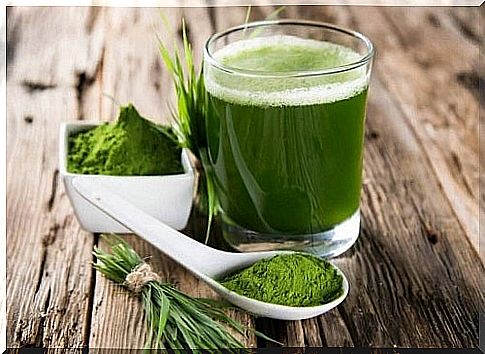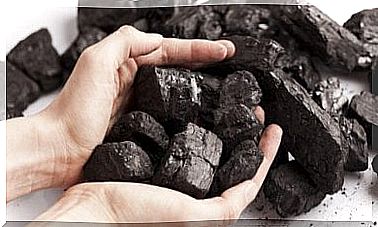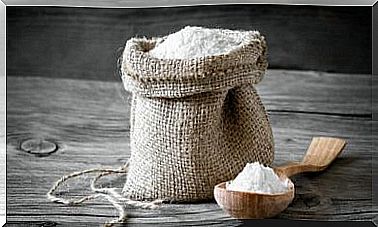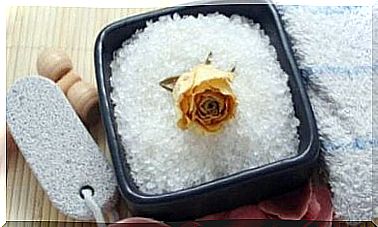Breastfeeding And Spirulina: Are They Compatible?

Currently, there is no consensus on the compatibility between breastfeeding and spirulina. There are a large number of professionals who see this association as positive or who do not consider it to have a major impact. For others, however, there may be some incompatibility. So can you combine breastfeeding with spirulina?
It is important to note that spirulina is an alga belonging to the genus Arthrospira. For some time, it has been promoted as a food supplement with exceptional properties. In this regard, we can see that it has a special nutritional composition and serves as a useful supplement against certain diseases.
Spirulina is available on the market in the form of tablets, liquid and powder. Healthy food stores tend to sell these supplements. In addition, there are no published studies to warn us about side effects or risky interactions with this substance.
Spirulina and its properties
Before deepening the compatibility between breastfeeding and spirulina, we will analyze the presumed properties of this substance. Although a large number of doctors do not consider it to have exceptional properties, the use of spirulina has become very popular. According to his supporters, there is evidence to suggest that spirulina has benefits in the following situations:
- Nutrition. Apparently, it contains a large amount of nutrients that serve as an ideal complement to the diet.
- Obesity. Spirulina may help reduce body fat, lower appetite and lower blood cholesterol. This is supported by a study published in Complementary Therapies in Medicine.
- Getting older. According to an article in Oxidative Medicine and Cellular Longevity, spirulina has antioxidant and anti-inflammatory properties. Therefore, it could slow down aging.
- Immune system. According to research published in the Archives of Toxicology, spirulina increases the level of antibody production.
- Others. According to research in Evidence-Based Complementary and Alternative Medicine, spirulina supports recovery, is antiviral, reduces chronic fatigue, helps relieve allergic rhinitis, lowers cholesterol, fights diabetes and more.

Breastfeeding and spirulina, pro arguments
Proponents of this substance believe that breastfeeding and spirulina are perfectly compatible. In fact, they recommend consuming spirulina during pregnancy and claim that it alleviates the mother’s nutritional deficiencies and contributes to the normal development of the baby.
According to some people, spirulina protects the mother during pregnancy because it contains 10 times more iron than regular foods. This could prevent anemia. Moreover, it also contains calcium, an essential mineral during pregnancy.
When it comes to breastfeeding and spirulina, many suggest that they are compatible. In fact, according to popular belief, spirulina helps provide more nutrients to the baby through breast milk. Among other things, spirulina contains gamma-linoleic acid, which is essential for the proper development of the baby’s brain.
Breastfeeding and spirulina, counter arguments
There is also a segment of the population who consider that breastfeeding and spirulina are incompatible. On the label of some brands of spirulina, there are warnings against consumption for pregnant or breastfeeding women and children, due to possible side effects.
The reason why many believe that breastfeeding and spirulina are incompatible is the large amount of iodine in this alga. This may alter, to a greater or lesser extent, thyroid function. However, there are no relevant studies to prove this relationship.
What was reported in a recent study published in Breastfeeding Medicine is that spirulina supplementation during breastfeeding changed the color of milk to blue-green. However, no abnormalities were found in the composition of the milk and, after stopping the administration, the milk returned to its normal color within 3 days.

The negative effects of spirulina consumption during breast-feeding cannot be ruled out. This is why spirulina is a supplement that should be used under medical supervision.
conclusions
Scientific studies to date do not confirm the properties of spirulina. There are no official studies to exclude them. In this case, it is best to consult your doctor before taking spirulina regularly, especially during pregnancy and lactation.
There are many substances on the market that are marketed as spirulina, but not all have the same composition. Some dietary supplements with spirulina have been shown to have higher levels of arsenic.
Similarly, not all forms of presentation are equally secure and reliable. Therefore, you need to check the quality of the supplement and buy it only from reliable sources.









